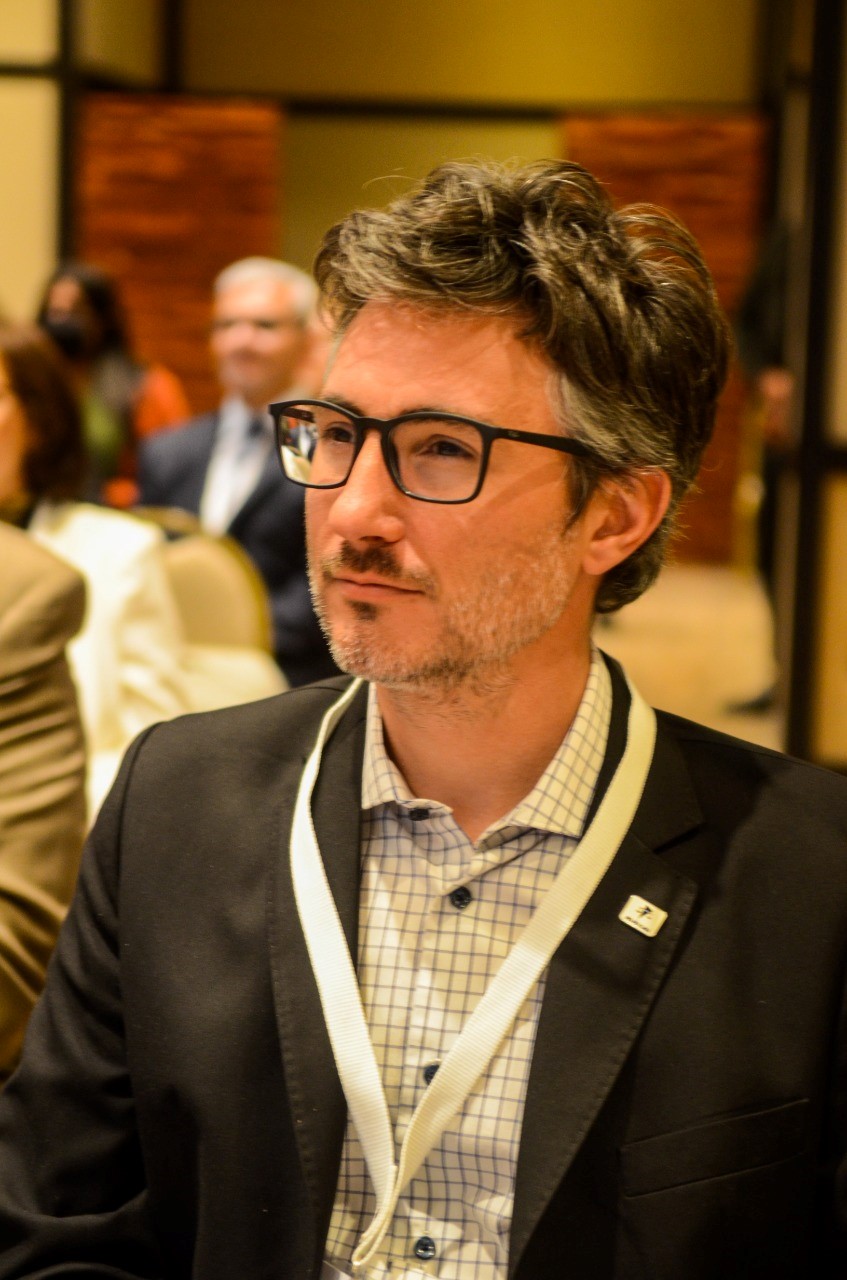This year marks the 7th Global Meeting on Law and Society. Held approximately every five years, this year’s Global Meeting welcomes attendees of academics, subject matter experts, students, and more from all over the world in a hybrid format: in-person in Lisbon, Portugal and online through virtual streaming. These attendees include CrimSL’s faculty and students who will be participating in numerous sessions, panels and networking activities, including presenting their own works and research.
Here are a few of CrimSL’s graduate students presenting at the 2022 Global Meeting on Law and Society in Lisbon this week.
Fernando Avila
The ‘prisoner-entrepreneur’. Responsibilization, employment and government at a distance at Punta de Rieles prison in Uruguay
Thursday, July 14 from 8:15 – 10:00 am (GMT+1)
Synopsis: The "prisoner-entrepreneur” can be understood as an agent in the governmental relations in a men's prison in Montevideo, Uruguay. This is a non-traditional prison in which prisoners' responsibilization plays a fundamental role as a strategy of governance deployed by the state authorities and agents to make prisoners responsible for developing, with broad levels of autonomy, an open range of activities that authorities consider ‘positive’, in what can be considered an example of “governing at a distance”. The production of goods and services stands out among these officially promoted activities. Most of them are generated from prisoners’ initiatives. To obtain the prison authorities' authorization and support to carry it out, prisoners are encouraged to design the productive activity project and draft a formal request. This "prisoner-entrepreneur" occupies a unique position in the Punta de Rieles' prison population. He is subject to responsibilization, requested to engage in a "positive use" of time and to develop forms of self-governance. However, simultaneously, as "employers" of other prisoners, they become and act as governmental agents and they structure the field of action of the "prisoner-employee", in a framework that has similarities and differences with the labour world on the "outside". In turn, this governmental role implies a whole series of collaborative but also competitive relationships with state agents, especially with prison officers. We address the peculiar position of the "prisoner-entrepreneur" in terms of his governmental role and his links with state agents, as a unique form of governance in this non-traditional Latin American prison.
 Jona Zyfi
Jona Zyfi
The Role of Privatization in Canada's Immigration Detention Centres
Friday, July 15, starting at 10:15 am (GMT+1)
Synopsis: The enforcement and management of immigration detention have traditionally been a core function of the state. In this presentation, I argue that the rise of neoliberal principles and practices of criminalization in Canada has resulted in the privatization of immigration detention by utilizing private security firms to supervise and control detainees and assist with deportations. Furthermore, I contend that an emulation of a public-private relationship is occurring between the federal and provincial g230overnments regarding the detention of migrants in provincial jails. A similar trend is also evident between the Canada Border Services Agency, NGOs, and private citizens who act as sureties in the community regarding alternatives to detention. Lastly, a form of privatization is occurring, as overall expenditures, particularly related to the conditions within detention facilities and legal, health, and social services, are being reduced drastically. Ultimately, the concern is that the overreliance on carceral facilities and the increasing involvement of private actors in the enforcement of detention will lead to entirely privatized immigration detention centers, thus further undermining transparency and accountability.
This research was just published as a co-authored book chapter with Centre Director and Professor Audrey Macklin in "Changing of the Guards: Private Influences, Privatization, and Criminal Justice in Canada".
 Roksolyana Shlapak
Roksolyana Shlapak
Police & Public Discourse on Racial Discrimination
Breaking New Ground: Racial Disparities within Canadian Police Statistics
Saturday, July 16, 2:45 – 4:30 pm (GMT+1)
Synopsis: In Canada, there is a lack of available data on race in the criminal justice system. Canadian research on race and crime has been thwarted by both formal and informal bans on the collection and dissemination of race-crime statistics. Limited available research, however, has demonstrated gross racial disparities across a number of police practices. In my presentation, I explore key arguments for and against race-based data collection and critically examine new developments made in this field both at the federal and provincial levels. In doing so, I highlight the shortcomings of current policies and practices. My presentation concludes with several recommendations for improved data collection strategies and use.
We wish all CrimSL attendees and participants a great week in this year's Global Meeting, and best of luck to those presenting their works this week!



